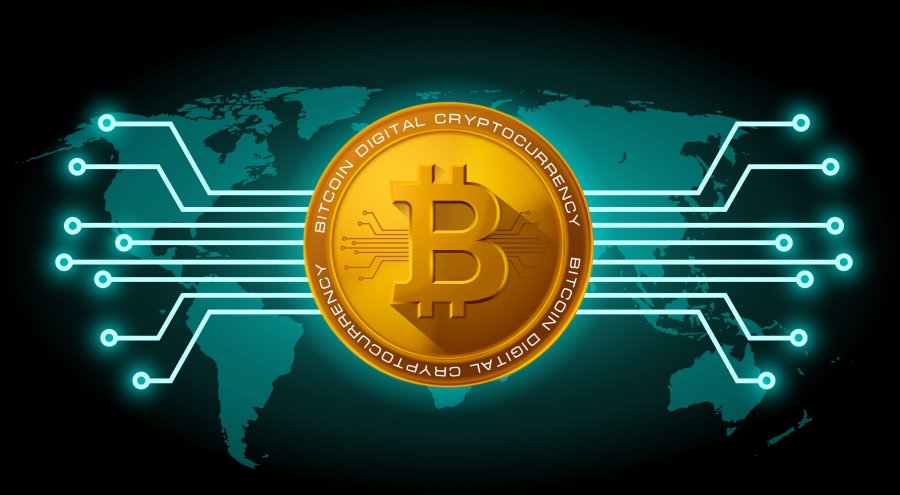
Blockchains, sidechains, mining – terminologies from the underground world of cryptocurrency keep piling by moments. Even though it seems ridiculous to introduce new monetary conditions in an already complex world of fund, cryptocurrencies offer you a much-needed remedy to one of their greatest annoyances in the modern currency market – safety of trade in a digital world. Cryptocurrency is a defining and disruptive innovation in the fast-moving universe of fin-tech, a relevant response to the demand for a safe medium of exchange from the days of digital trade. At a time when prices are only numbers and digits, cryptocurrency suggests to do precisely that!
At the most basic sort of the period, cryptocurrency is a proof-of-concept for other digital money that claims secured, anonymous trades through peer reviewed online affiliate websites. The misnomer is much more of a property instead of real currency. Unlike regular cash, cryptocurrency models function with no central power, as a decentralized digital mechanics. In a dispersed cryptocurrency mechanism, the cash is issued, backed and managed by the collective community peer system – the constant activity of that is called mining on a peer reviewed machine. Successful miners get coins also in respect to the time and resources used. After employed, the transaction data is lent to a blockchain from the system below a public-key, preventing every coin out of invested twice from precisely the exact same user. The blockchain could be considered as the cashier’s register. Coins have been secured behind a password-protected digital pocket representing the consumer.
Supply of coins from the digital money globe is pre-decided, without any exploitation, by any person, associations, government entities and financial institutions. The cryptocurrency process is famous for its speed, as trade activities within the digital pockets may materialize money in a couple of minutes, when compared with the conventional banking system. It’s also mostly irreversible by layout, further strengthening the concept of anonymity and removing any additional odds of tracing back the money to its first owner. Sad to say, the outstanding features – rate, security, and anonymity – also made crypto-coins the manner of trade for numerous illegal transactions.
The same as the currency market in the actual world, money prices change from the digital coin ecosystem. Due to the limited number of coins, as requirement for money increases, coins payable in worth. Bitcoin is the greatest and most prosperous cryptocurrency up to now, with a market cap of $15.3 Billion, getting 37.6percent of this current market and now priced at $8,997.31. Bitcoin hit on the money market in December, 2017 by being traded at $19,783.21 percent, before confronting the sudden dip in 2018. The fall is partially due to increase of other digital coins like Ethereum, NPCcoin, Ripple, EOS, Litecoin and MintChip.
As a result of hard-coded limitations in their own supply, cryptocurrencies are regarded to adhere to the very same principles of economics because gold – cost is decided by the restricted supply and the changes of demand. Together with the continuous fluctuations in the market rates, their sustainability remains to be seen. As a result, the investment in virtual monies is more speculation in the moment compared to a regular money industry.
In the aftermath of industrial revolution, this digital money is an essential part of technological disturbance. By the purpose of a casual observer, this increase may appear exciting, threatening and mysterious all at one time. Whenever some economist stay skeptical, others view it as a lightning revolution of financial industry. Conservatively, the digital coins will displace roughly quarter of foreign monies from the developed countries by 2030. This has created a new asset category along with the classic worldwide market and a new pair of investment car will come in cryptofinance within the upcoming decades. Lately, Bitcoin might have obtained a dip to provide spotlight to additional cryptocurrencies. However, this doesn’t signify any wreck of this cryptocurrency itself. Though some financial advisors focus over authorities’ function in breaking the covert world to control the fundamental government mechanism, others insist on continuing the present free-flow. The popular cryptocurrencies are, the further regulation and scrutiny they draw – a frequent paradox that bedevils the digital note and erodes the key objective of its presence. In any event, the absence of intermediaries and supervision is making it unexpectedly appealing to the investors and inducing daily trade to alter radically. The International Monetary Fund (IMF) worries that cryptocurrencies will displace central banks and global banks in the not too distant future. After 2030, periodic trade is going to be controlled by crypto supply chain that will provide less friction and much more economical worth between technologically adept sellers and buyers.
In case initialcoinoffering aspires to become a crucial part of the present financial system, it’s going to need to meet very divergent fiscal, regulatory and social standards. It will have to be hacker-proof, user friendly, and significantly guarded to provide its basic advantage to the mainstream financial system. It ought to preserve user anonymity with no station of money laundering, tax evasion and fraud. Because these are must-haves to your digital system, it is going to take few years to understand if cryptocurrency will have the ability to compete with the actual world money in full swing. Although it’s very likely to occur, cryptocurrency’s achievement (or lack thereof) of handling the challenges will decide the fortune of this financial system from the days beforehand.

